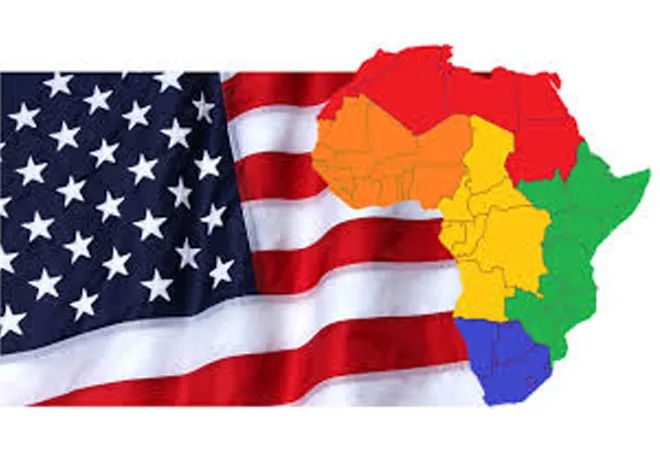
From July 9 to 11, former U.S. President Donald Trump will host five African heads of state in Washington for a high-stakes mini-summit focused on trade, investment, and security — even as tensions mount over proposed U.S. entry bans affecting more than two dozen African nations.
Presidents Joseph Boakai of Liberia, Bassirou Diomaye Faye of Senegal, Mohamed Ould Cheikh El Ghazouani of Mauritania, Brice Clotaire Oligui Nguema of Gabon, and Umaro Sissoco Embaló of Guinea-Bissau are expected to attend the summit, which aims to deepen strategic economic ties in a more intimate setting than traditional multilateral forums.
According to reports from Africa Intelligence and FrontPage Africa, the agenda will prioritise economic cooperation, reciprocal investment, and regional security, with special attention to critical mineral supply chains, maritime stability in the Gulf of Guinea, and transnational crime.
The summit comes on the heels of the U.S.-Africa Business Summit held in Luanda in June, where more than $2.5 billion in deals were signed between American and African partners.
The U.S. State Department has since signalled a renewed commitment to “investment-led” partnerships on the continent.
However, this diplomatic outreach is unfolding under a cloud of controversy.
Internal memos obtained by Reuters and The Washington Post reveal that the U.S. is considering sweeping visa restrictions on citizens from 25 African countries, citing concerns over document fraud, overstays, and national security.
Among those potentially affected are Senegal, Mauritania, Gabon, and Liberia — all represented at the upcoming summit.
The visa threat, communicated to African diplomats on June 14, follows an earlier wave of restrictions in June that impacted countries such as Chad and the Republic of Congo.
Critics argue the timing of the proposed bans undermines Washington’s stated commitment to a “win-win” approach to African engagement. Others view the summit as an attempt to salvage key relationships while recalibrating U.S. migration and security priorities.
As Washington prepares to receive the five leaders, observers will be watching closely to see whether high-level dialogue can bridge growing divides — or whether the visa dispute will cast a long shadow over America’s evolving strategy in Africa.



